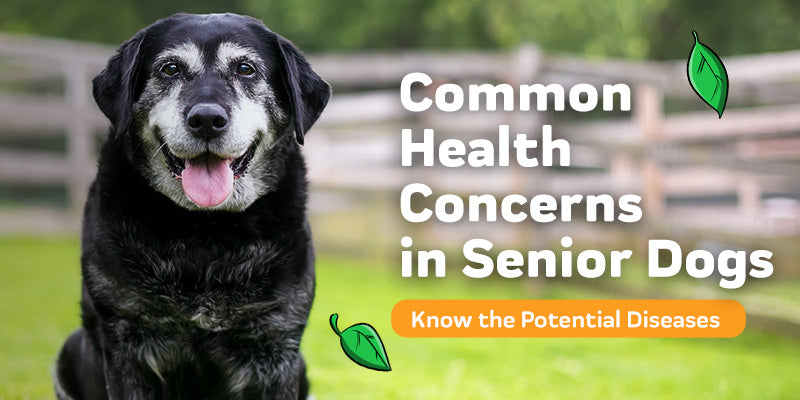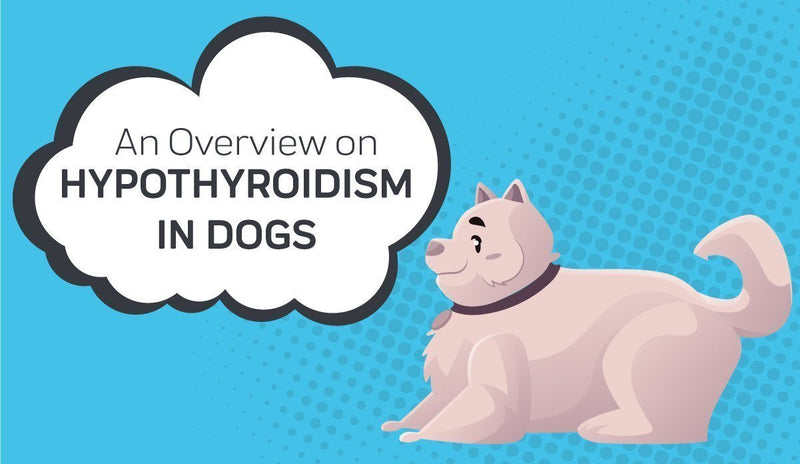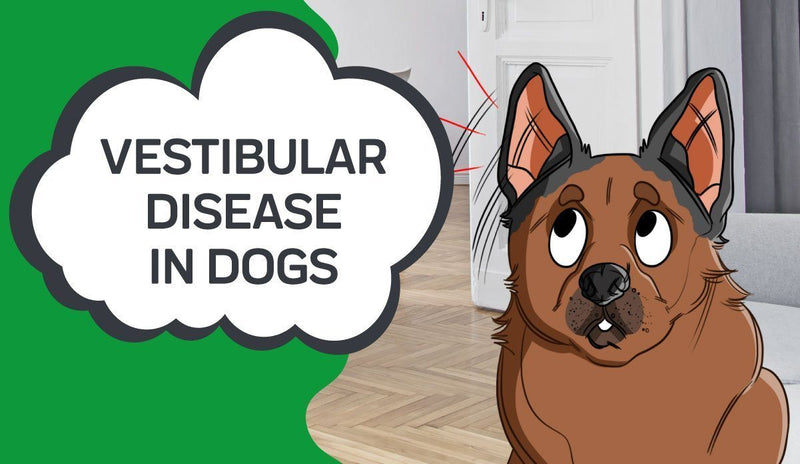- What Is Leptospirosis?
- What Causes Leptospirosis?
- What Are the Symptoms of Leptospirosis in Dogs?
- How Is Leptospirosis in Dogs Diagnosed?
- How To Treat Leptospirosis in Dogs
- How To Prevent Canine Leptospirosis
- Conclusion
Sometimes, our pups do things that frustrate and worry us, such as drinking stagnant water. It might be water in the gutters, puddles in the alley, or muddied pools in the wild. In all these situations, the biggest concern for a dog owner is the pet's health.
Stagnant or contaminated water can cause myriad health problems. These sources can be breeding grounds for bacteria, disease, and all sorts of things that can make your dog feel sick or put its life in danger.
One of the main concerns is a condition called leptospirosis, which happens after a canine has consumed street water. It can affect the kidneys, liver, and overall health.
What is this disease? We'll cover what leptospirosis is and more in this guide. Stick around to learn about the symptoms, diagnosis, treatment, and ways to prevent this disease from infecting your animal.
What Is Leptospirosis?
This zoonotic disease results from leptospiras serovars bacteria. It affects dogs and other animals around the world. This type of bacteria grows in standing water, damp conditions, and muddy areas. It can also come from carriers, such as rats, wildlife, and livestock cattle.
Because the bacteria prefer warmer climates, most canine leptospirosis cases occur during the warmer months of the year. If animals or humans have a diagnosis for it, it can cause kidney failure, liver damage, and sometimes even death.
What Causes Leptospirosis?
Canine leptospirosis transmitted through contact with infected animals or their infected urine. The contact could be direct or indirect.
If your dog drinks street water, they could be lapping up the leptospira interrogans. Ingesting the bacteria could make them sick. They could also contract the disease by swimming in stagnant pools.
The leptospiras bacteria slip in through the mucus membranes, the mouth, nose, and eyelids, of your canine or from open cuts/abraded skin. Unfortunately, the infectious disease adapts to each carrier, meaning that it can transmit between species.
Leptospirosis in dogs can come from contact with various infected animals. Infected dogs can also spread the condition to humans.
Once the bacteria is inside your puppy, it spreads through the bloodstream. The concentrated leptospiras reside in the organs. The canine's body will try to eliminate it by urinating, but it can reside for weeks to months.
In mild cases, your dog will recover but still carry the leptospiras in their tissues, making them a carrier.
If you delay treatment too long, your pet could suffer from kidney failure, liver damage, or death. This zoonotic disease could cause permanent damage to your pet and ruin its quality of life.
What Are the Symptoms of Leptospirosis in Dogs?
If you notice any signs of leptospirosis in your dog, you should seek medical help immediately. A veterinarian will be able to help get them treatment and back on the right track. Infected dogs do not have a high survival rate if they severely exhibit signs of leptospirosis.
Here are the clinical signs you want to be on the lookout for:

- If they have a high fever that doesn't go down
- If your dog feeling lethargic and lacking energy
- If there are unnatural weight loss and a loss of appetite
- If your dog seems depressed
- If they suffer from an acute kidney injury
- If your dog looks like they have jaundice (yellow eyes, etc.)
- If your dog whines or bites at you when you press on their abdominal
- If they vomit or have diarrhea
- If they have trouble breathing
- If there is blood in their urine
If left untreated, leptospirosis can transform into leptospiremia. At this stage, the bacteria spread to many organs through the bloodstream.
Your dog can also get chronic kidney disease or have their kidneys shut down. In some cases, a pulmonary hemorrhage can kill your infected puppy. Some strains can induce chronic hepatitis.
Your vet will tell you which specific strain of the leptospiras has affected your furry friend.
How Is Leptospirosis in Dogs Diagnosed?
It's essential to get dogs with leptospirosis to the vet right away as it is an infectious disease. Otherwise, other animals in the area could be at risk of contracting the condition.
Your doctor will see the clinical signs of the leptospiras in your animal's tissues. They can help come up with a treatment plan.
Before going into the office, consider the following questions:
- Have you recently been to a rural area with your puppy?
- Has your dog been wandering in the woods, tall grass, or other places that wildlife might frequent?
- Has your dog been in contact with any animals such as raccoons, rats, or birds?
The vet will record the answers to your questions and check your dog for any of the physical symptoms they might be exhibiting.
Finally, they'll perform a microscopic agglutination test. This exam tests the blood of the animal to reveal the number of leptospiras in the stream.
Once you have a diagnosis of leptospirosis, you can discuss a treatment plan with your doctor.
How To Treat Leptospirosis in Dogs

Your doctor will tell you which treatments can cure the clinical signs of leptospirosis.
For immediate treatment, the vet will prescribe a 5 mg/kg dosage of doxycycline. You'll need to give your dog this medicine every day for two weeks.
If your animal is allergic to the doxycycline, the vet will put it on penicillin to start. Afterward, a two-week period of orally feeding your dog doxy is necessary to help their organs.
After curing the initial case of canine leptospirosis, your vet will work on a recovery plan with you and your pet.
If damage has occurred in the dog's organs, the vet will focus on fluid therapy to restore its health. The doctor also will use other boosting serums to keep their electrolyte and acid-base balances. Other support measures include antiemetic, GI protectants, phosphate binders, and hepatic support medications.
In some situations, supportive therapy isn't enough, and your furry friend will still experience renal failure. The vet will place the animal on replacement therapy with occasional hemodialysis.
How To Prevent Canine Leptospirosis
If you happen to catch leptospirosis early on, antibiotic therapy could be a potential solution. However, this area needs more research.
As a responsible pet owner, you want to keep leptospirosis from infecting your animal. Prevention is key to keeping your puppy healthy, happy, and playful.
A vaccine is the most effective way to prevent canine leptospirosis. Four of the types of leptospira serovars have vaccines.
People have been getting their animals vaccinated for leptospirosis for years. Schedule an appointment to get the leptospirosis vaccine for your animal. That way, you can prevent your pet from unnecessary suffering.
Conclusion
If you think your pet can't become infected with leptospirosis, think again! Knowing what signs to look for and how to prevent this infectious disease is a step in the right direction. If you notice any of the severe symptoms mentioned above, give your pet's doctor a call.

















Hello, my 9 year old GSD was infected with lepto last Oct. We live on a 5 acre completely fenced in property and he does not go outside of the property unless leashed and I never let him lap up water along the way. He was hospitalized for 5 days at the Specialty Clinic in Buffalo Grove, Il. (known to be one of the best). He received the best of care and I did not restrict any therapy due to expense. He went home on doxy and fluid therapy. He wasn’t eating and I had to syringe feed him. He now has Grade IV renal failure. I’ve taken him to the Univ of Wisc and no one has a better prognosis. He is on everything you mention in your article, Zofran, Entice, phosphate inhibitor, high blood pressure meds, gastric protector, etc. It’s a struggle to get him to eat anything. I’ve lived here for 35 years with 10 GSD’s and other breeds over the years. I’ve never had lepto before and did not vaccinate due to two of my older dogs having severe reactions to the vac. before I lived here. Please let people know that the risk of a reaction is nothing compared to the debilitating and probably fatal result of acquiring this horrible disease. Thank you.